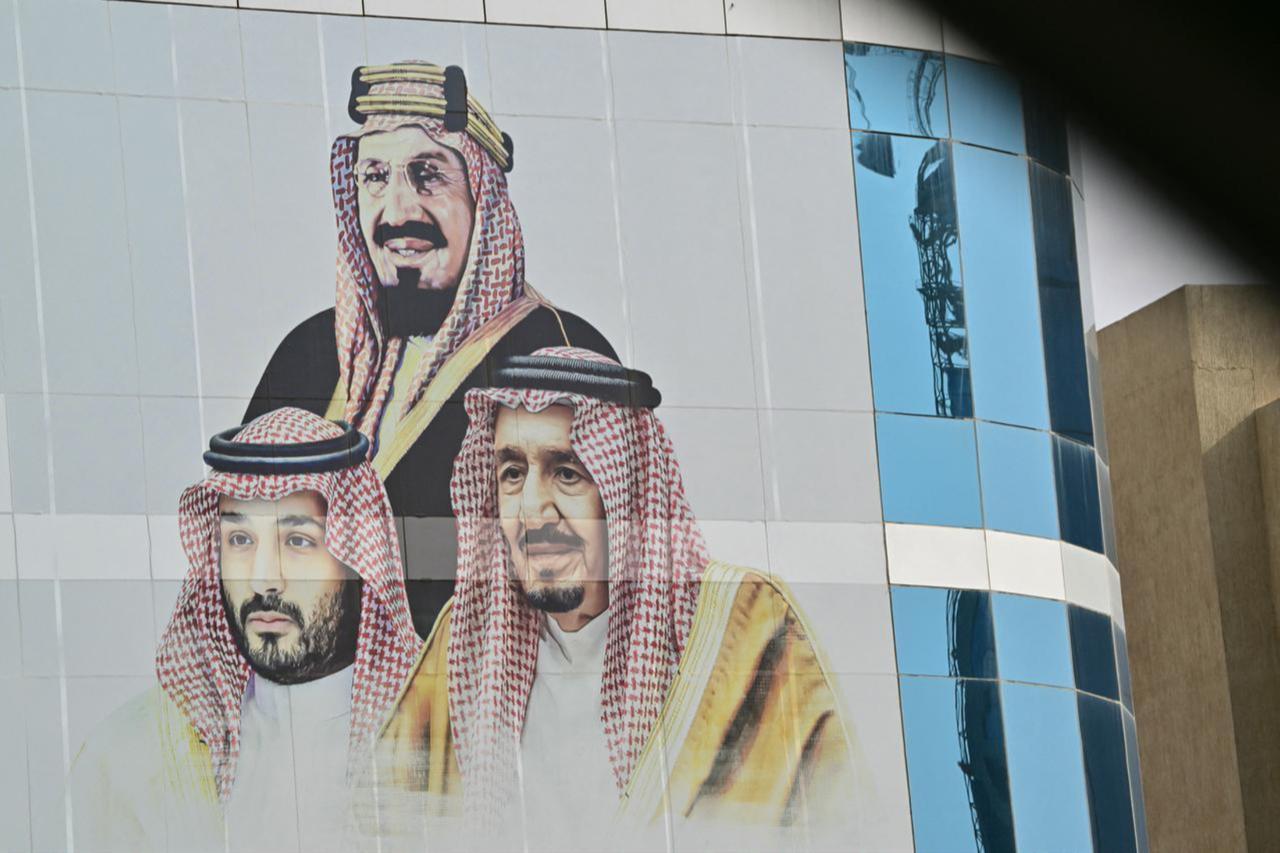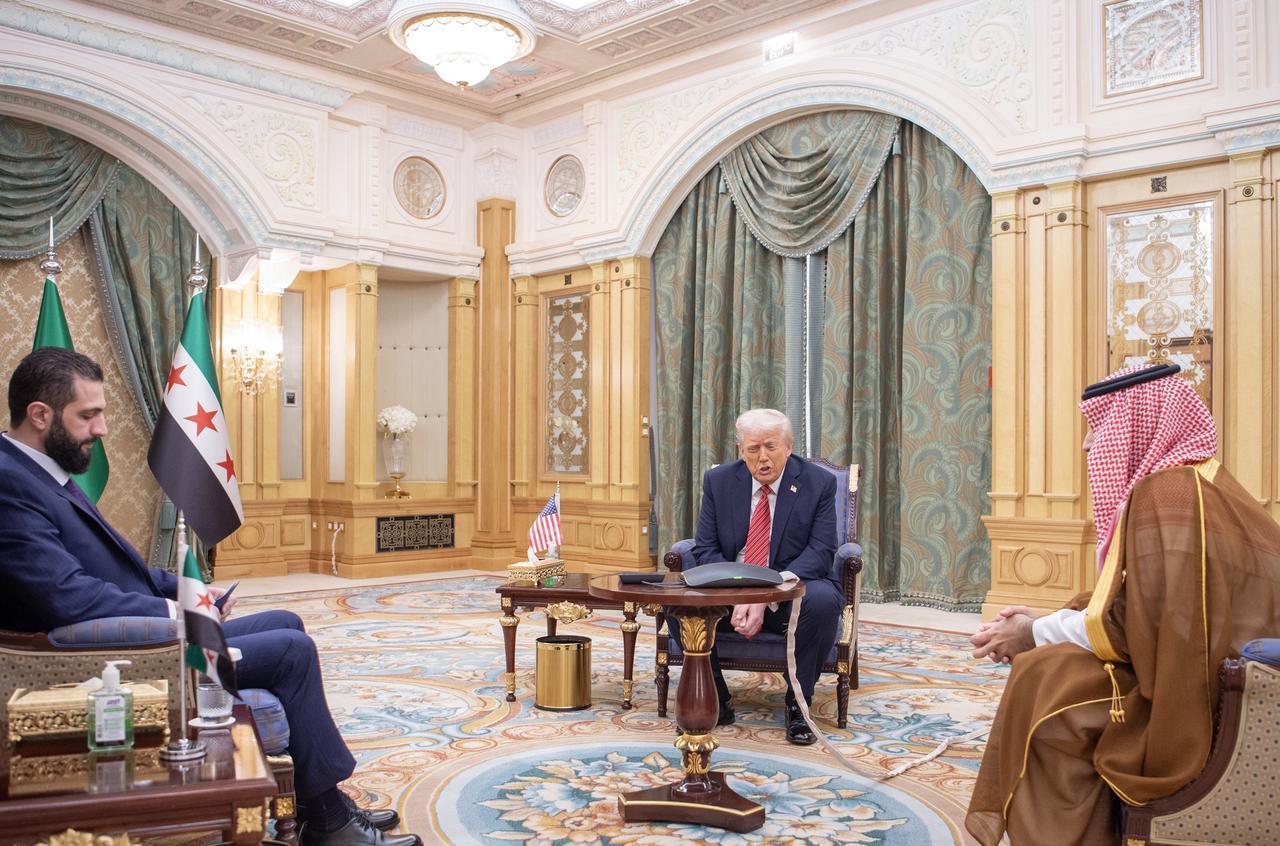
This October, Riyadh turned Syria from a pariah file into a headline investment thesis. At the Future Investment Initiative in Riyadh, Syrian President Ahmed al-Sharaa pitched Syria’s reconstruction to the world’s largest pools of capital—under Saudi sponsorship.
The symbolism mattered: Damascus was not pleading for aid; it was selling a market. The news hook was real money and a political runway. Saudi and Syrian officials touted multi-billion-dollar deal pipelines; Sharaa spoke publicly of tens of billions attracted in 2025, even as sanctions compliance remains the gating variable.
The point was unmistakable: Saudi Arabia is no longer “normalizing” Syria; it is underwriting Syria’s re-entry to the Arab and Western systems on Saudi terms.
Diplomatically, the pivot sharpened days later when Damascus recognized Kosovo—an alignment marker that would have been unthinkable in the Assad era and that Saudi Arabia promptly welcomed.
The choreography served two audiences. To Washington and Europe, it signaled that the new Damascus is willing to break with old taboos and adopt Western-friendly positions. To the region, it advertised Saudi convening power and its ability to move once-frozen files. For Syria, it opened doors that only Gulf sponsorship can open right now.
The immediate theater for this strategy is economics. Saudi capital, the Public Investment Fund (PIF), and adjacent private and family-office money want first-mover rights across cement, power, housing, telecoms, logistics and ports. Riyadh’s logic is Vision 2030 realism: build corridors that connect the Gulf to the Levant and Türkiye, lock in supply chains on land as well as sea, and convert political leverage into bankable projects.
July’s Damascus forum put figures behind the intent, and October’s FII gave Sharaa a premium stage to tell investors that Syria is open for business—provided sanctions navigation is solved. Even as U.S. restrictions remain, Reuters’ reporting makes clear the Kingdom is preparing a scale of investment that, if sequenced with compliance, could turn on jobs and reconstruction at pace.
Security is the second pillar. The Saudis are effectively bundling reconstruction with deliverables: curbing Captagon, consolidating security chains under state authority, and diluting Iranian leverage in Syria. Unlike the performative “reconciliation” scripts of a decade ago, this one ties money to measurable outcomes.
That Saudi framing is reinforced by what comes next: a White House visit penciled in for Nov. 10 and a structured U.S.–Syria security file, including formal participation against Daesh.
None of these moves without Saudi air cover—and none of it is sustainable unless Damascus can demonstrate that Iran’s networks are being constrained rather than recycled under new branding.

For Türkiye, this is not a sideshow; it is a strategic dividend waiting to be cashed. Ankara will never love Saudi courtship of actors it does not fully trust, and Riyadh has long viewed segments of Türkiye-backed militias with suspicion. But the macro-deal still works in Türkiye’s favor.
A stabilized northern Syria reduces refugee pressures, hardens the rules of border management, and creates a lawful marketplace for Turkish constructors, energy service firms, and logistics champions to re-enter at scale—especially if Gulf money underwrites the risk.
Most importantly, a Saudi-anchored Syrian state that is progressively less permeable to Iranian militias slows the encirclement dynamic Ankara has worried about from Iraq to the Mediterranean. The calculus is simple: if Riyadh funds institutions and corridors, and Washington provides the sanctions roadmap, Türkiye gets a safer neighborhood and a larger export corridor—even if local partners are not Ankara’s first choice.
Israel sits uneasily in this matrix. In the short term, Saudi-brokered de-escalation channels that remove Iranian assets from southern Syria will be welcomed in Tel Aviv; in the medium term, a Syrian state regaining capacity and negotiating directly with Washington narrows Israel’s freedom to strike at will. That tension is by design.
Riyadh wants to reduce flashpoints, cap Iranian adventurism, and prove that Arab statecraft—not non-state proxies—sets the rules of the Levant.
A Syria plugged into Gulf capital and Western security arrangements is a Syria that weakens both Tehran’s “axis” and Israel’s argument that only deterrence works west of the Euphrates. The rumors of parallel understandings with Israel, packaged with U.S. security files, fit this logic even if the choreography remains deliberately opaque.
October’s optics, therefore, matter because they compress economics, diplomacy, and security into one story arc. SPA’s coverage of Sharaa on the FII stage sent the intended message at home; Reuters’ pieces on Saudi billions and the PIF’s refocus sent the intended message to markets; and Al-Arabiya and Turkish outlets carrying the Kosovo recognition sent the intended message to Western capitals: Damascus can align when it counts.
Add a first-ever White House visit for a Syrian president, and you have the scaffolding of a new settlement. It is not yet permanent, but it is coherent.
Will it hold? Only if money and governance move together.
Saudi Arabia can convene and invest; it cannot substitute for Syrian state capacity. The transitional leadership must professionalize the bureaucracy, ring-fence the judiciary from factional capture, and prove that anti-narcotics and counter-smuggling are policy, not press releases.
Washington must define a compliance corridor that rewards verifiable progress without green-lighting profiteering. And Ankara must accept that a Saudi-led reconstruction—while imperfect—beats the Iranian alternative.
If those pieces lock, Syria’s October in Riyadh will be remembered as the moment the war economy finally started to die, replaced by a rules-based one that serves Syrians—and stabilizes the neighborhood from the Gulf to the Bosphorus.